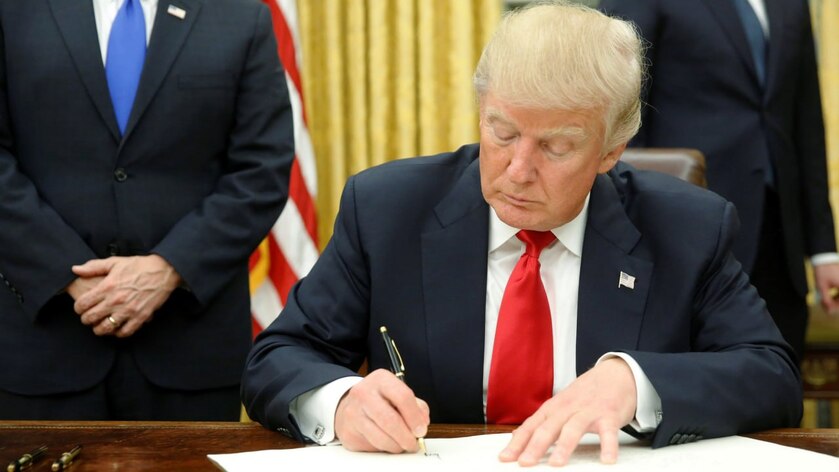Trump Plans 100 Executive Orders Starting Day 1 on Border, Deportation, and More
President-elect Donald Trump is gearing up to launch an unprecedented series of executive orders from day one in office, focusing on border security, deportations, and a flurry of other policy priorities.
During a private meeting with Republican senators, Trump unveiled plans for a substantial number of executive actions, with many set to roll out as he assumes the presidency. This executive blitz includes tightening U.S.-Mexico border security, stringent immigration enforcement, and overturning existing policies on gender and health, among others.
Trump’s strategy represents a bold departure from conventional presidential transitions, aiming to reshape federal policy through a swift succession of directives. This approach seeks to sidestep traditional legislative processes, marking a significant shift in how presidential power is wielded.
Senators briefed on the plans anticipate a major reversal of current administration policies, with efforts to complete the U.S.-Mexico border wall and establish detention facilities for migrants awaiting deportation. These moves are part of broader immigration strategies that also revisit policies from Trump’s first term, demanding migrants apply from outside the U.S.
Specific focus is placed on expeditiously dealing with over a million migrants, identified as priorities due to recent illegal entry, criminal convictions, or court orders for removal. This initiative targets what Trump’s team considers the most straightforward cases in their immigration crackdown.
As Trump prepares for inauguration, the anticipation builds not just for the policies he will enact but for the aggressive manner in which he plans to implement them. The coming days are poised to define the new administration’s trajectory, with significant implications for immigration and border policy.
This momentous push on day one is not just about policy but a clear message about the direction and tone of Trump’s presidency. Senators are poised to support these rapid changes, highlighting a period of intense activity and potentially far-reaching consequences for national policy.

The First Amendment (Amendment I) to the United States Constitution prevents the government from making laws that regulate an establishment of religion, or that prohibit the free exercise of religion, or abridge the freedom of speech, the freedom of the press, the freedom of assembly, or the right to petition the government for redress of grievances. It was adopted on December 15, 1791, as one of the ten amendments that constitute the Bill of Rights.
MY VOICE WILL NOT BE SILENT! IT'S CALL FREEDOM OF SPEECH!!! IF YOU WANT TO FOLLOW ME ON OTHER WEBSITES HERE THEY ARE:
ANONUP https://anonup.com/@lizdeb56/posts
AVON http://www.yourAVON.com/dcummings
CHATDIT https://chatdit.com/user/timeline/lizzydebbie
CLOUT HUB https://app.clouthub.com/users/u/loveisyeshua/posts
Disciples of Yeshua https://t.me/+7XcCK5zM88E3YTFh
FACEBOOK
https://www.facebook.com/profile.php?id=61566416639888
GAB https://gab.com/lizzymarydeb56
GETTR https://gettr.com/user/yeshuaislo...
MEWE https://mewe.com/i/lizzyc3
...















